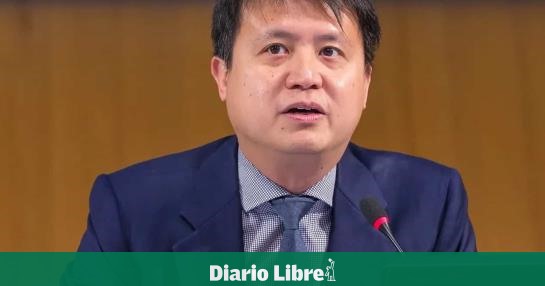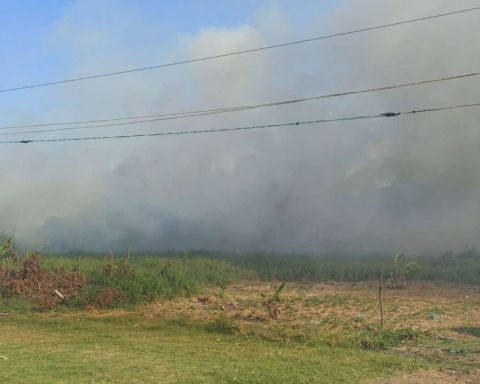Before the coronavirus pandemic and the subsequent economic crisis set in, the main concern of Uruguayans, for years, was insecurity. The then opponents Luis Lacalle Pou and Jorge Larrañaga managed to capitalize on it, and together with their co-religionists from the National Party, managed to question former Interior Minister Eduardo Bonomi a dozen times. The third year of the coalition government has begun, and part of its “flagship”, in which security has a prominent place, will be put up for consideration in the March 27 referendum. Of the 111 articles on security included in the law, 33 are questioned.
In terms of security, the LUC modified sentences, aggravated circumstances and created crimes. According to data from the Prosecutor’s Office, accessed by El Observador, as of March 3 of this year there were 510 convictions for the four crimes created by law. Of those, two are among those that the Commission for Yes intends to repeal and under those figures there were 394 convictions.
One is the resistance to arrest (article 4) and the other the insult to the police authority (article 11).
“Whoever, upon receiving an arrest warrant from a public authority, physically resists arrest will be punished with a sentence of six months in prison to three years in prison. Anyone who tries to prevent the arrest of another person will be punished with the same penalty (…) If, in resisting arrest, the public authority is assaulted or attempted, the penalty will be from six months in prison to four years in prison”, points out article 4 for which there were 130 accusations (there is a presumption of crime) and 94 convictions since the law came into force.
But the vast majority of criminal sanctions were for the crime of offending authority, which accounted for 58.8% of convictions (300). In total there were 390 imputations.
This crime is committed “by anyone who hinders, offends, attacks, throws objects, threatens or insults the police authority in the exercise of their functions or because of them” and is exposed to a sentence of between three and 18 months in prison. “The exercise of freedom of the press or the mere protest against police action will not be punished,” says the article that wields as aggravating circumstances that act in a group of three or more people, that is against more than one official, the ” hierarchical elevation” of the offended party and that occurs in the vicinity of his work or home. It is a mitigating circumstance, the retraction of the offender. Previously, although in a more limited way, this conduct was legislated under the figure of contempt.
The first formalization for this crime occurred the day after the LUC was enacted and brought to the table a debate that is still going on, which is its possible derivation into police abuse. In that case, which occurred in Juan Lacaze, the young man in question assured that the police officers acted improperly and that he had been beaten for no reason.
The crimes that will continue beyond the 27
Of the crimes created by the LUC there are two that are not included among the articles that are intended to be repealed with the referendum. One is the attack on workers in education, health, transportation and goods affected by these services (article 16), for which there were two accusations and one conviction. While for the removal or destruction of media or electronic devices (article 15) there were 144 formalizations and 115 convictions.
The first offense is punishable by the payment of 80 readjustable units – $ 114,240 at current value – or prison. While the second, which refers to the “unauthorized removal or destruction, in whole or in part, of means or electronic tracking and control devices” is punishable by a sentence of 10 to 18 months in prison and an expenditure of 20 to 900 units. adjustable, which are between $28,560 and $1.28 million.
For these two crimes there were a total of 116 convictions.
The increase in penalties
The possibility of a “heavy hand” and the intention that criminals not “get in and out” of jail due to laws that the then opposition considered too benign, colored the 2019 electoral campaign.
For this reason, when the coalition came to power, it included in “the summary of the government program” – which was condensed in the LUC – there were increases in sentences for various crimes.
Seven of the 33 security articles that are to be repealed directly or indirectly affect the length of sentences.
• Article 13, in addition to modifying the conditions of the crime of self-evasion – attempt to escape from prison – previously it was necessary that violence be used to be considered such. Now it has been added that if violence is used, the corresponding penalty is from one year to five years in prison. In the previous version, it was from six months to four years.
• Article 35 legislates the inapplicability of the benefit of early release for certain crimes. The LUC adds robbery, robbery with deprivation of liberty and extortion to the list of illicit offenses for which early release is not possible.
• Article 74 increases the penalties for drug trafficking, which since the LUC came into force has had a minimum sentence of four years in prison and a maximum of 15. In this way, the law retakes a 1974 legislation and ceases to aside the reform that had been made in 1998 and introduced lighter penalties.
• Article 75 legislates on the regime of semi-liberty for adolescent offenders. Although previously this was a possibility for all of them, the LUC eliminates it for those who have committed the following crimes: rape, sexual abuse, especially aggravated sexual abuse, deprivation of liberty, robbery, seizure, intentional homicide, serious and very serious injuries. Although they will be able to do so once they have completed half of “the imposed socio-educational measure of deprivation of liberty”, when all the parties involved are aware of it and there is a favorable report on it.
• Article 76 increases the maximum prison sentences for adolescents. The limit used to be five years and currently, for the crimes of aggravated and especially aggravated intentional homicide, rape, especially aggravated sexual abuse, it became 10 years.
• Article 77 establishes the increase in penalties for serious crimes when the offender is older than 15 and younger than 18. In this case, those who commit the following crimes will have a term of no less than two years: intentional homicide with special aggravating circumstances , very serious injuries, rape, aggravated deprivation of liberty, kidnapping and special laws that punish with a sentence of between six and 12 years in prison. Before it was a year. Meanwhile, those who commit the crime of robbery, extortion and drug trafficking will not have a sentence of less than one year.
• Article 86 prohibits the possibility of redeeming sentence for work or study to those who have committed the crimes of rape, sexual abuse and especially aggravated sexual abuse, especially aggravated and very especially aggravated homicide, robbery with deprivation of liberty, narcotics and kidnapping. .

















